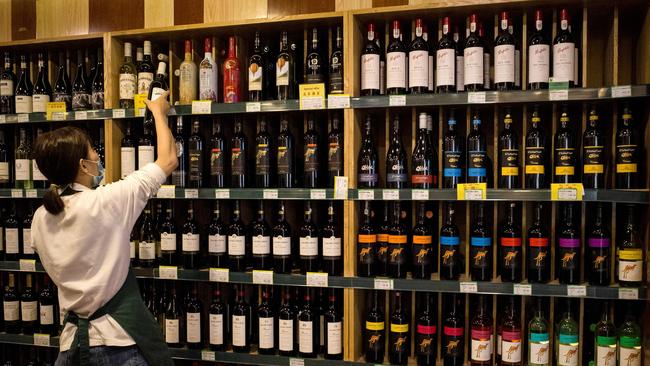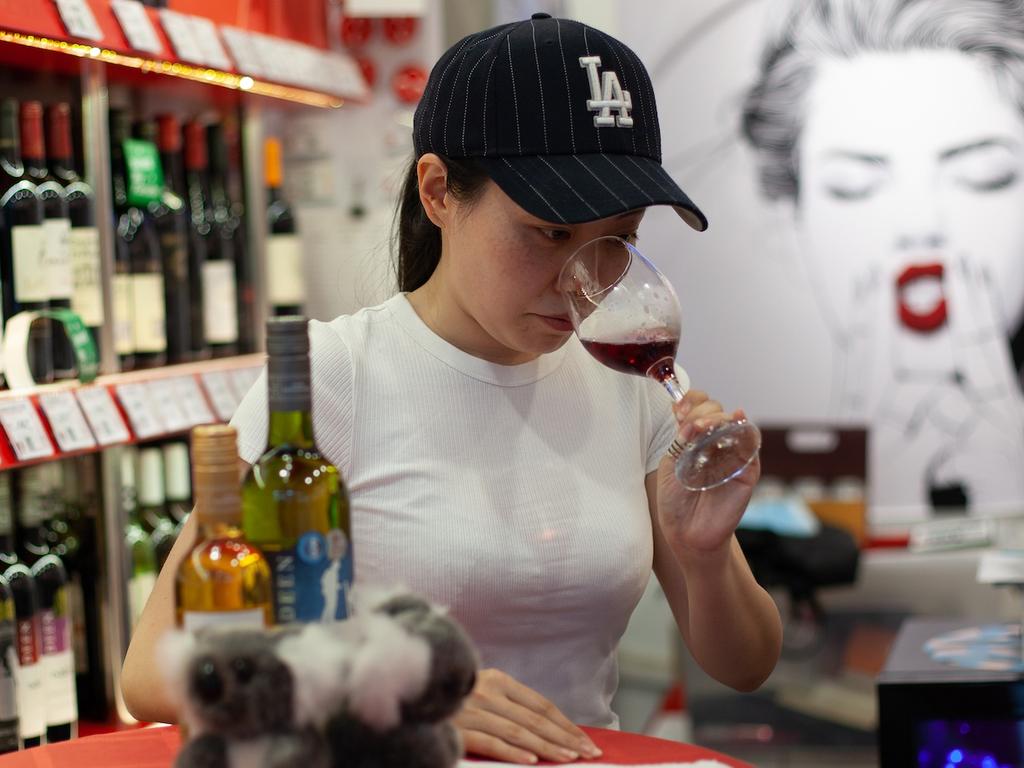China launches new probe into Australian wine industry
China has launched a new anti-subsidy investigation into Australia’s $1 billion wine export trade.

China’s Ministry of Commerce has launched a new anti-subsidy investigation into Australia’s $1 billion wine export trade.
The investigation, announced on Monday on the Ministry’s website, follows an anti-dumping inquiry launched two weeks ago by the Ministry into Australian wine sales into China.
Australia is the biggest supplier of foreign wine to China, a market worth some $1.1 billion over the past year.
While the investigation announced two weeks ago is looking at the question of Australian wine being dumped in the Chinese market, the second one throws a detailed spotlight on the range of subsidies available to the wine industry in Australia.
The Ministry of Commerce said it had received an application from the China Alcoholic Drinks Association – the same organisation which lodged the complaint which led to the anti-dumping investigation- to look into subsidies for the wine industry in Australia.
The Ministry says it notified the Australian government of this new investigation on August 27.
The Australian wine industry has strongly argued against any suggestion that it is dumping wine in the Chinese market, pointing to the high cost of Australian wines in China compared to many other imports.
The Ministry of Commerce’s statement on Monday says it will look into reports of some 40 different subsidies from state and federal governments in Australia which it says are given to the Australian wine industry.
These include a range of measures including regional assistance from the Federal Government to the wine industry, the Federal Government’s Export Market Development Funding project, the National Land Conservation Project, funding for wine tourism, drought assistance, and concessional loans for farm financing.
It also details assistance given to the industry by state governments in NSW, Queensland, Victoria, South Australia, Tasmania, Western Australia and the ACT.
Australian Grape and Wine, the key industry body representing the Australian wine industry, said in a statement on Monday that the second anti-subsidy investigation was flagged two weeks ago when it announced the anti-dumping investigation into Australian wine.
“The Australian grape and wine sector is well placed to respond to this investigation,” it said.
“Australian Grape and Wine will collaborate with wine businesses and the Australian government to ensure we cooperate fully throughout the investigation process.
“China is an important market for Australian wine and our wine is in demand from Chinese consumers.
“Australia has a large number of exporters with close cultural ties to China.
“The Australian industry welcomes the opportunity to build on these ties and work with the Chinese industry and government to further technical cooperation and develop lasting relationships.”
The Ministry’s statement implies that the investigation will follow a similar timetable to the anti-dumping investigation covering the period from January 1, 2015 to the end of December last year.
Like the anti-dumping investigation, it can also take a year to the end of August 2021 but can be extended for another six months after this.
The move follows the imposition of tariffs of up to 80 per cent on Australian barley exports to China following an 18 month anti-dumping investigations into Australian barley exports to China.
It comes as tensions are increasing between Australia and China with the federal government recently rejecting an application by a Chinese company to buy the drinks and dairy business of Japanese owned Lion in Australia and introducing new laws to challenge state government deals wit foreign governments, a move aimed at the Victorian governments signatory to China’s high profile Belt and Road Initiative.
Federal Trade Minister Simon Birmingham said the counterveiling duties investigation onto subsidies on the Australian wine industry was “broadly foreshadowed at the time that the anti-dumping investigation was initiated”.
But the Minister strongly rejected suggestions outlined in the statement from the Ministry of Commerce that the Murray-Darling Basin Economic Development Program or programs that support research and development of the wine industry equated to a subsidy on wine exports.
He said the government work “work with our internationally-renowned wine industry to mount the strongest possible case against these claims.”
A spokesperson for Treasury Wine Estates, the largest single exporter of Australian wine to China including Penfolds, said the company would co operate with any requests for information from Chinese or Australian authorities.
“TWE has had a long and respectful relationship with China over many years through its team, partners, customers and consumers,” the spokesperson said.
“As an importer of high-quality, premium Australian wine, TWE remains committed to China as a priority market and will continue to invest in its Chinese business and its relationships with customers and consumers to enhance the wine category and grow its contribution to China.”





To join the conversation, please log in. Don't have an account? Register
Join the conversation, you are commenting as Logout